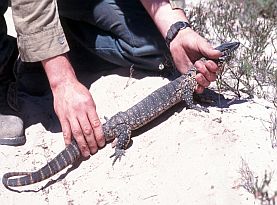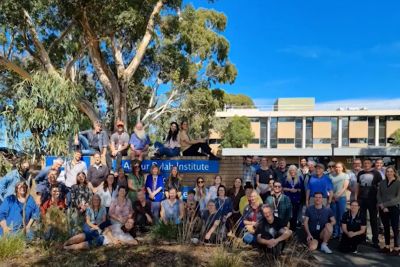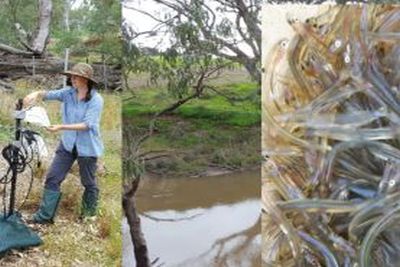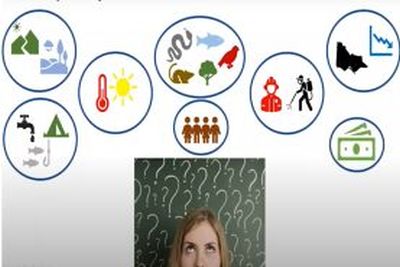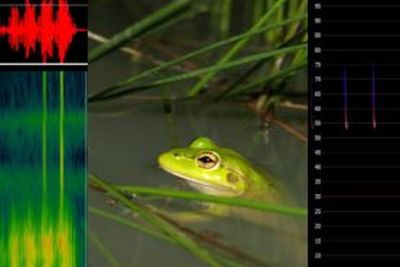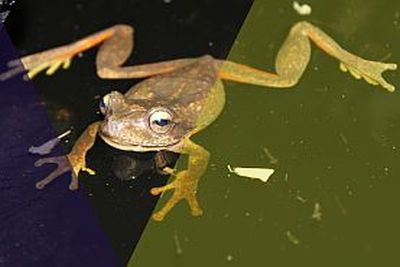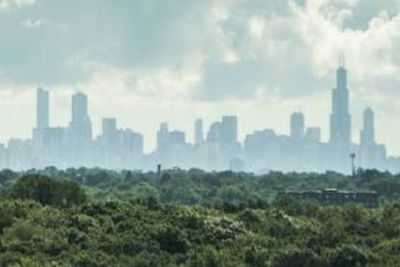SWIFFT Seminar notes 28 July 2022
Arthur Rylah Institute – Science that matters
SWIFFT seminar notes are a summary of the seminar and not intended to be a definitive record of presentations made and issues discussed.
This SWIFFT seminar was conducted online with 242 participants via Microsoft Teams. SWIFFT wishes to acknowledge support from the Department of Environment, Land, Water and Planning, Victoria in organising the seminar and thank the speakers from ARI for their time and delivery of presentations. Also, thanks to Michelle Butler who chaired the session from Ballarat and acknowledged Traditional owners, Elder’s past and present on the lands covered by the meeting.
Key points summary
Introduction to Arthur Rylah Institute for Environmental Research (ARI)
- ARI is part of the Department of Environment, Land, Water and Planning.
- ARI helps contribute information to the people of Victoria on how to manage our natural environment.
- ARI science underpins high quality evidence-based decision making by governments and communities.
ARI scientists work across plants, animals, natural systems, rivers, coasts, grasslands, alps, and forests but importantly much of the work involves co-operation and involvement of the community.
- The ARI web site has information on research projects, e-news and seminars.
Monitoring ecological outcomes of water for the environment across Victoria
- River regulation has disrupted the natural flow of waterways resulting in major impacts to ecosystems and native flora & fauna species.
- Water for the Environment (environmental flows) is aimed at restoring aspects of natural flow regimes flow altered systems.
- The effective use of environmental water is reliant on having a good understanding of species ecology, populations and flow requirements.
- Research is conducted through the Victorian Environmental Flow Monitoring Assessment Program and the Victorian Wetland Monitoring Assessment Program.
Using decision science to address complex environmental problems
- ARI is applying Decision Science to provide evidence-based decision making and transparency in the decisions being made.
- There has been a shift over time from managing one or more species to encompassing whole ecological systems along with other competing values.
- Placing community at the centre, valuing nature and recognising traditional owner values are key aspects of the decision-making process.
- Structured Decision Making focuses on making optimal choices based on the available information.
Identifying species from their calls with A.I. Deep Learning meets birds, bats and frogs
- Automatic sound recorders are being used to identify endangered species, communities of fauna and feral animals.
- ARI is developing ways of improving the accuracy and efficiency of processing large amounts of acoustic data from the field focusing on frogs, birds and bats.
- The model being used is a 1-D Convolutional Deep Neural Network using TensorFlow (some similarity to the technology used in Shazam music app).
- Sound recordings provide scientists with the information to discover species in an area and look at changes over time or in response to events such as bushfires.
- Two new AI software models were announced in September 2025
In search of Watson’s Tree Frog in a post-fire landscape – using genetics to inform conservation management
- Watson’s Tree Frog was only described in 2020 as a distinct species of the Large Brown Tree Frog and is considered endangered Nationally and critically endangered in Victoria.
- In Victoria, there were no records between 1996 and 2015 (19 years). It is now known to exist at 43 sites within the East Gippsland forests and is being monitored using passive acoustic recorders.
- The January 2019/20 Black Summer bushfires burnt 85% of Watson’s Tree Frog known habitat with the species being detected at 64% of sites post fire but long-term impacts need to be monitored.
- Watson’s Tree Frog has low genetic diversity in Victorian populations which may require genetic rescue from NSW populations into the future after confirming the taxonomic status.
How do we make connecting and acting for nature the norm?
- ARI is involved with a large number of stakeholder organisations and groups in collaborative research aimed at helping people connect with and act for nature.
- The Victorian’s Valuing Nature program is part of a 20-year plan, Biodiversity 2037, which recognises the importance of community in protecting nature.
- The annual Victorian Nature Festival is one of the flagship events in helping people connect with nature comprising social media and virtual on-line events.
- Victoria is developing a state-wide Biodiversity Citizen Science strategy which includes evaluation of citizen science.
- Work is underway to develop a nationwide program to encouraging people to be responsible pet owners, particularly in relation to containing pet cats and protecting wildlife.
View the ARI website https://www.ari.vic.gov.au
List of speakers and topics
- Introduction to Arthur Rylah Institure (ARI) - Fern Hames, Director of ARI
- Monitoring ecological outcomes of water for the environment across Victoria: Research informing management - Dr Zeb Tonkin (Senior Scientist Applied Aquatic Ecology - Arthur Rylah Institute, DELWP)
- Using decision science to address complex environmental problems - Dr Tracey Regan (Principal Research Scientist - Arthur Rylah Institute, DELWP)
- Identifying species from their calls with A.I. Deep Learning meets birds, bats and frogs - Dr Peter Griffioen (Senior Scientist, Ecological Analysis & Synthesis - Arthur Rylah Institute, DELWP)
- In search of Watson’s Tree Frog in a post-fire landscape – using genetics to inform conservation management - Louise Durkin (Scientist, Wildlife Ecology - Arthur Rylah Institute, DELWP)
- How do we make connecting and acting for nature the norm? - Dr Kate Lee (Program Leader, Victorians Value Nature - Arthur Rylah Institute, DELWP)
SPEAKER SUMMARIES
Written summaries will be provided in the near future. At this time please refer to recordings made of presentations.
Introduction to Arthur Rylah Institure (ARI)
Fern Hames, Director of ARI
Monitoring ecological outcomes of water for the environment across Victoria: Research informing management
Dr Zeb Tonkin (Senior Scientist Applied Aquatic Ecology - Arthur Rylah Institute, DELWP)
Using decision science to address complex environmental problems
Dr Tracey Regan (Principal Research Scientist - Arthur Rylah Institute, DELWP)
Identifying species from their calls with A.I. Deep Learning meets birds, bats and frogs
Dr Peter Griffioen (Senior Scientist, Ecological Analysis & Synthesis - Arthur Rylah Institute, DELWP)
Update September 2025
The Arthur Rylah Institute (ARI) Victoria, announced in September 2025 the development of two world-leading AI software models:
· ARI Sound Analyser (ARISA) modelling software that can rapidly identify animal calls of birds, frogs, bats and other mammal species in enormous datasets of real-world audio recordings.
· ARI Ecoacoustic Listener (ARIEL) validation software providing confirmation of AI detections.
The new technology has been successfully tested and used to uncover previously difficult to detect species and is now available for further collaboration and investment.
Further details from DEECA Wildlife call recognition using artificial intelligence
In search of Watson’s Tree Frog in a post-fire landscape – using genetics to inform conservation management
Louise Durkin (Scientist, Wildlife Ecology - Arthur Rylah Institute, DELWP)
How do we make connecting and acting for nature the norm?
Dr Kate Lee (Program Leader, Victorians Value Nature - Arthur Rylah Institute, DELWP)


